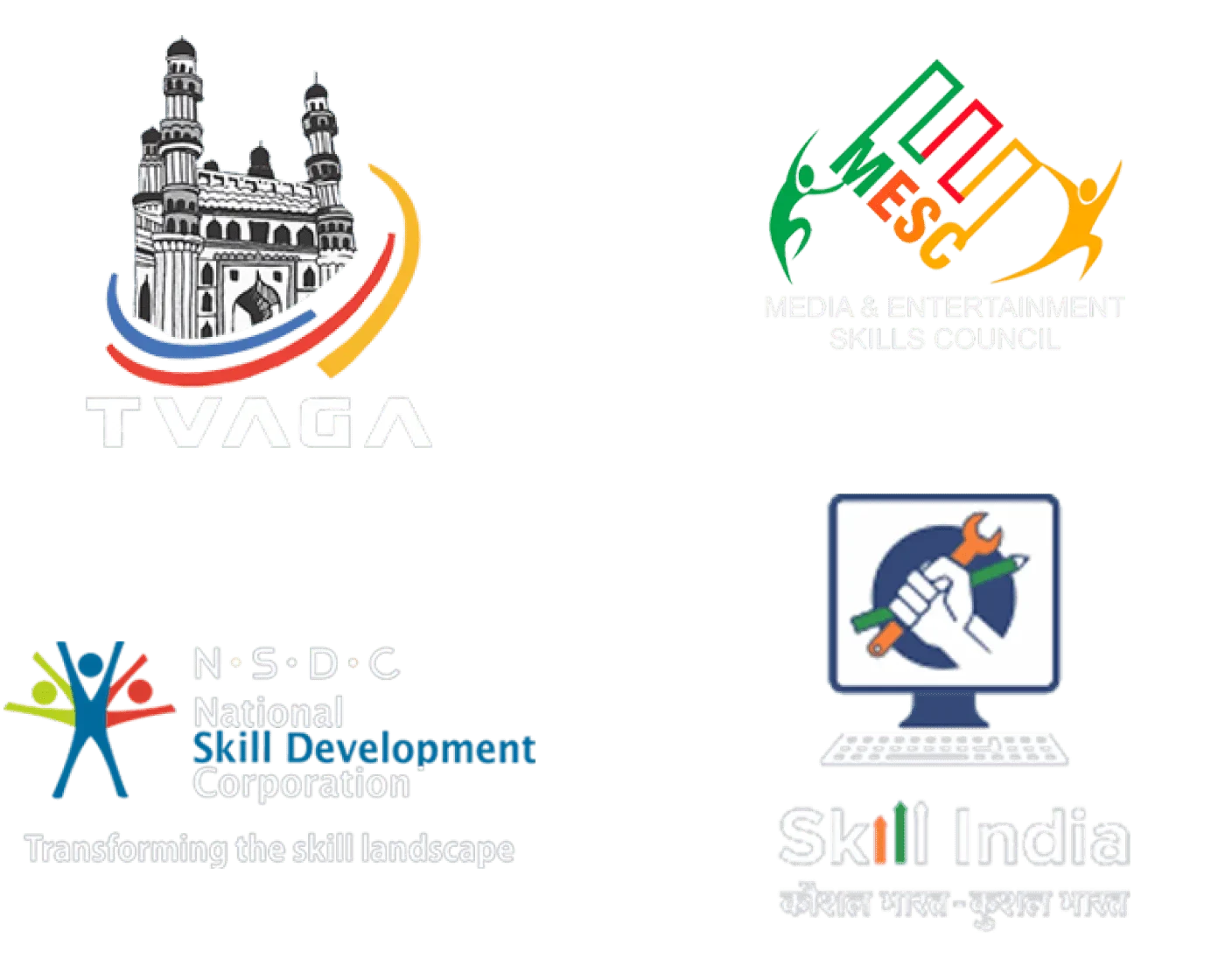Bring Your Vision to Life – Turn your passion into a distinguished career. Master Filmmaking Today!
Unleash your creativity and become a visionary filmmaker with our comprehensive filmmaking courses. Master the art of directing, cinematography, and Photography through hands-on training and access to professional-grade equipment.
SOFTWARES USED




What is Film Making?
Filmmaking is the creative process of producing motion pictures, encompassing every stage from concept to final cut. It involves scriptwriting, directing, cinematography, editing, and post-production. Filmmakers bring stories to life by blending technical expertise with artistic vision, creating impactful visual narratives for film, television, and digital media.
What courses are we offering in Filmmaking?
We offer a comprehensive range of Filmmaking courses focused on Cinematography, Direction, and Photography to equip aspiring filmmakers with essential skills. These courses provide a solid foundation for a successful career in filmmaking, enabling students to bring their creative visions to life on screen.
The filmmaking industry presents numerous exciting career opportunities, particularly in the areas of direction, photography, and cinematography.
What courses are we offering in Filmmaking?
We offer a range of Filmmaking courses focused on Cinematography, Direction, and Photography to equip aspiring filmmakers with essential skills. Together, these courses provide a comprehensive foundation for a successful career in filmmaking, helping students bring their creative vision to life on screen.
The filmmaking industry offers a wide range of exciting career opportunities, particularly in direction, photography, and cinematography.
Cinematography
Master visual storytelling through advanced camera techniques, shot composition, and lighting. Learn to create stunning visuals that enhance the narrative and mood of films and digital media.
Career Opportunities
Cinematographers, also known as Directors of Photography (DoP), play a crucial role in capturing the visual essence of a film. They collaborate with directors to establish the film’s visual style and make artistic decisions regarding camera angles, lighting, and shot composition. To excel in this role, cinematographers must possess a keen eye for detail and a thorough understanding of camera equipment and techniques. Many begin their careers as camera assistants or in other entry-level positions before advancing to more senior roles.
Job Roles in Cinematography
Director of Photography
Camera Operator
Camera Assistant
Gaffer
Grip
Direction
Learn the art of directing, including working with actors and translating scripts into visual stories. Master scene blocking, collaboration with the crew, and leading a production from concept to final cut.
As a film director, you oversee the entire creative process of a film, managing everything from script development to post-production. Directors work closely with actors and crew members to realize their vision, requiring strong leadership and communication skills. Many directors start their careers in junior roles, such as assistant directors or production runners, where they gain valuable experience and build industry connections.
Job Roles in Direction
Film Director
Assistant Director (AD)
Script Supervisor
Photography
Develop essential photography skills, including composition, lighting, and camera settings. Learn to capture visually compelling images that enhance storytelling for both film and digital platforms.
In filmmaking, photography encompasses various roles, including still photographers who capture behind-the-scenes images or promotional shots for films. These professionals often collaborate with marketing teams to create visuals that attract audiences. Additionally, photography skills are vital for directors and cinematographers, as they must understand how to frame shots effectively to visually tell a story.
Job Roles in Photography
Still Photographer
Commercial Photographer
Editorial Photographer
Event Photographer
FAQ
No prior experience is required. Our course is suitable for beginners as well as those with some experience in filmmaking.
You will work on a variety of projects, including short films, documentaries, promotional videos, and narrative storytelling exercises that allow you to apply your skills in real-world scenarios.
Yes, upon successful completion of the course, you will receive a certificate from our institute recognizing your skills in filmmaking.
We have strong industry connections and provide career guidance and placement assistance to help you secure internships and jobs with leading production companies and studios.
Currently, we only offer the filmmaking course in a classroom setting. Online classes are not available at this time.
The minimum age requirement for the filmmaking course is 18 years. However, we may consider exceptional cases on an individual basis.

